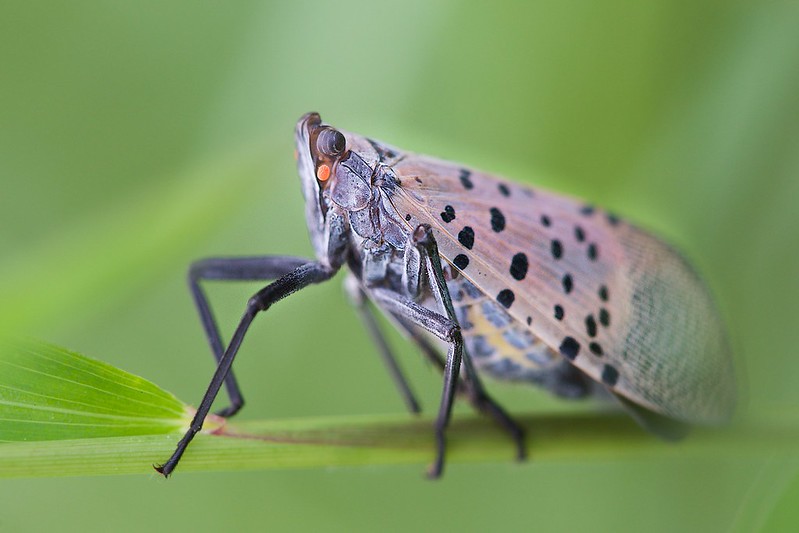If you’ve seen them on the news recently, have heard your friends and family talking about them, or just have gone outside, you’ve likely been made aware of a new invasive species spreading like wildfire both online and in the environment. Lantern flies have recently taken the eastern United States by storm, appearing by the hundreds seemingly out of nowhere. But these spotted insects can do much more damage than their small stature would suggest.
The spotted lantern fly is originally native to China and Vietnam. As an invasive species, it has spread to parts of South Korea, Japan, and the United States. It has quickly increased its presence in these areas it has invaded and become a serious issue. This species’ arrival in the U.S. first began in Pennsylvania, spreading to other states such as Connecticut, New York, Maryland, Ohio, Delaware, Virginia, and of course, New Jersey.
As per the New Jersey State official site lantern flies are known to mainly feed on tree-of-heavens (originally native to China) but also target grapevines, maples, black walnut, birch, willow, and many others. Lantern fly feeding can have numerous negative effects on the ecosystem such as damaging and killing plants that are important for native creatures. In the feeding process, the lantern fly releases honeydew that attracts bees and wasps and helps the growth of mold and fungi.
In Bergen County, there have been constant sightings of lantern flies outside, in school, and even in people’s homes. Dozens of lantern flies can be seen littering the streets and sidewalks. Lantern flies feed on many of the plants and trees that can be commonly found in New Jersey and, by extension, Cresskill. This issue is one that can affect our local ecosystem and is closer to home than you might think.
There are many things that people are doing to help combat this issue. Generally, if you see a lantern fly, you are advised to kill it. According to the Montgomery Township official website, vinegar, soap and water solutions, and neem oil are all effective counters to the pests. Another angle experts have been pursuing is the reduction of the aforementioned tree-of-heaven trees. These plants are invasive and the main feeding grounds of the lantern fly. Getting rid of them is one way to prevent the spread of lantern flies.
Given the threat these insectoid invaders pose to ecosystems both in our town and on a larger scale, it is important to take measures to combat them. Though there is already action being taken in Cresskill, it might be good to consider what you can do to solve this issue, spread awareness, and snuff out the lantern flies.









